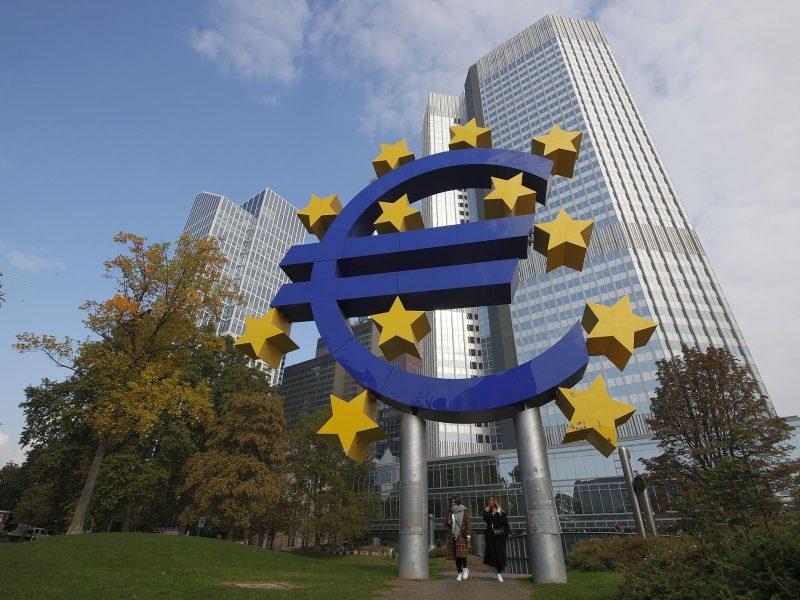
You do not have to be an economist or a university professor to understand that the European Union (EU) risks heading towards an unprecedented economic crash. Friends and foes agree that the economic policies of the European Commission and European Central Bank (ECB) are disastrous. A deliberate choice or just ignorance and mismanagement?
By Arthur Blok and Marco Mattiussi
Inflation in the Eurozone has been breaking record after record in the past months. Inflation accelerated to a new record in the first quarter of 2022. It does not look like this will change any time soon.
The President of the ECB, Christine Lagarde, frequently appears in the media elaborating as a true media celebrity on policies that are more and more difficult to understand and follow. Not only by the regular citizens but also by experts.
Let’s be frank: central bankers are not required to be great speakers. It is not in their job description. They should abide by the principle “least said, soonest mended.” Montagu Norman, the governor of the Bank of England from 1920 to 1944, lived by the motto “never explain, never apologize.”
Similarly, former US Federal Reserve Chair Alan Greenspan once proudly observed, “learned to mumble with great incoherence.” Greenspan wanted to make sure he did not tip off markets to possible changes in his monetary policy. The late Wim Duisenberg (ECB President 1998 to 2003) and Jean-Claude Trichet (2003 to 201) followed the same tradition.
Mario Draghi (2011 - 2019) and Lagarde have entirely different approaches. They became more public figures that made frequent media statements. Of course, the global Financial Crisis of 2008 played a pivotal role in this process. In addition, so did the Covid-crisis. Both events hit the European economy rock hard.
It makes sense: inflation-targeting regimes need somehow to manage expectations. Prices are rising, and everybody looks up to them for answers. They have to persuade consumers and economic actors that they understand what is going on and that they are handling the situation well.
If there was one miscalculation, it was the interest rates that have been kept at a historic low since the Financial Crisis of 2008. It resulted in massively overspending consumers and recorded inflation in European real estate in the past 4 to 6 years. This adds to the surge in the price of commodities and energy costs due to various other factors.
The President of the European Commission, Ursula von Leyen, Lagarde, and their counterparts are accelerating, rather than cooling, a looming recession.
First, the European mismanagement of the Covid pandemic with unnecessary lockdowns, travel bans and shutting down activities had a devastating effect on the EU economy. This policy has caused a desperate need to print more money to keep ailing economies alive.
Which, as everyone understands, is a primary cause of inflation.
Almost overnight and in a nearly magical way, the Covid crisis has then been replaced by the crisis consequent to the conflict between Ukraine and Russia. Instead of mediating in solving the problem, a similar tunnel-vision in dealing with it is being implemented, saying that Russia is wrong and is not allowed to win.
It has ultimately to get on its knees. No discussion.
The problem with this approach is that such a simplistic vision of a much more complex situation carries a very high cost for Europe.
It was further rising inflation, causing food shortages, increasing energy costs, an impending economic crisis, and even a possible escalating European war with all its consequences. In the end, ordinary hardworking people will pay the price of this.
It is possible that Lagarde's most recent decision again not to raise interest rates will, eventually, plunge Europe into the most significant depression since the introduction of the Euro. Because, of course, the more being spent, the higher the inflation, causing the EU to enter a negative spiral that might take years to exit,
It is then fair to say that the ECB policy is causing significant monetary instability within Europe. Nothing has been done in the past months about this unprecedented inflation rate. Should we start to think that this is a deliberate strategy of the ECB to let inflation fly high, reducing ordinary citizens’ spending power? If yes, why?
Should we further conclude, as some conspiracy theorists are doing already, that this is part of a larger plan to lead the EU towards bankruptcy - and even a possible collapse? Does that even make sense? Why would Europe’s current leaders and advocates want their EU to collapse?
Or is it just plain incompetence? Maybe it is time for rethinking Europe before it is too late and there is no more EU to save.
Is this still possible? Or is it already too late?





